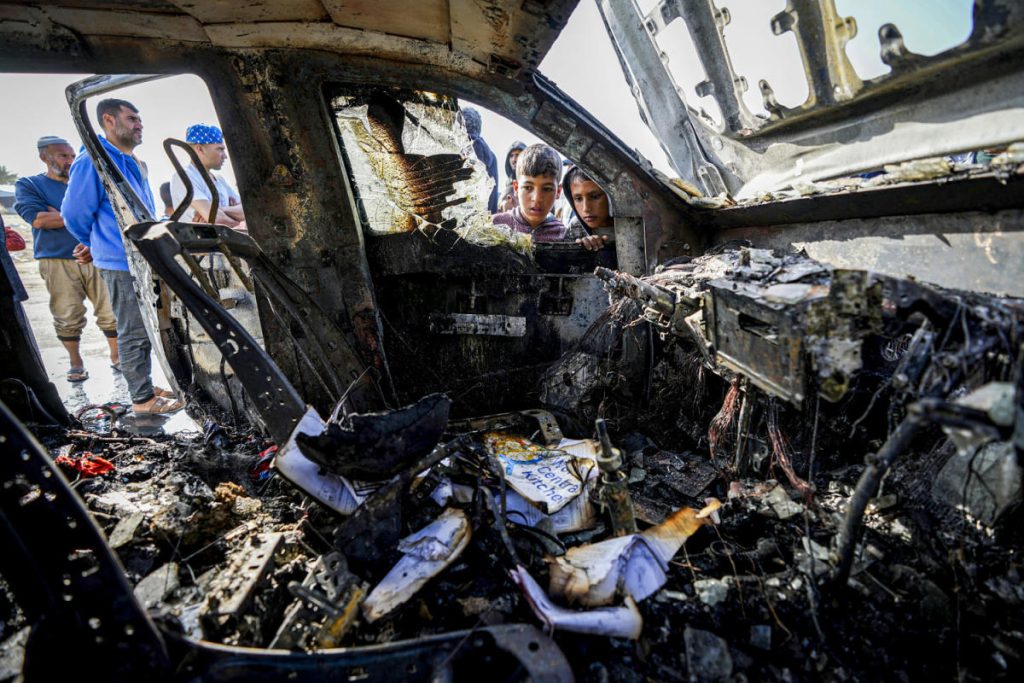An airstrike on a World Central Kitchen convoy in the Gaza Strip resulted in the death of seven team members, sparking questions about Israeli military practices in the war. While Israeli officials acknowledged the bombings, Prime Minister Benjamin Netanyahu stated that the country’s forces had unintentionally hit innocent people. Few details about the incident have been released, but efforts to understand what happened have been made by geolocating the damaged aid vehicles along a coastal highway in Gaza. The convoy was comprised of three vehicles traveling south near WCK’s headquarters in the central Gaza Strip, with two armored vehicles and one softback vehicle.
Images of the damaged vehicles show fire damage, burn marks, and visible evidence of the airstrike. The international food aid charity announced a pause in its Gaza aid operations following the loss of seven staff members. International aid workers from the U.S., Canada, Britain, Australia, Poland, and a Palestinian driver were among those killed in the incident. The U.S. has called on Israel to conduct a swift investigation into the airstrike to protect humanitarian workers and ensure accountability for what happened.
World Central Kitchen, founded by celebrity chef José Andrés, had been providing humanitarian food aid in Gaza, serving millions of meals over 175 days. Andrés urged the Israeli government to stop indiscriminate killing, restrict humanitarian aid, and targeting civilians and aid workers, emphasizing the importance of not using food as a weapon. The convoy was leaving a warehouse after unloading more than 100 tons of humanitarian food aid brought to Gaza by sea earlier that day. The location of the charity’s headquarters and the trajectory of the convoy’s travel raise questions about the circumstances of the airstrike and the reasons behind it.
The IDs of the staff members killed in the airstrike were not released, prompting further calls for transparency and accountability in the investigation. The convoy consisted of three vehicles, with the northernmost vehicle showing signs of fire damage, while the second vehicle had a large entry hole and blood visible on the seats and white paintwork. The third vehicle, located a mile south of the first two, was off the road and appeared to have suffered more damage. Missing its roof and windshield, the vehicle displayed signs of blood and dirt staining on the metal frame and interior seating.
The incident has raised concerns about the safety of humanitarian aid workers in conflict zones and the need for measures to protect them from harm. As the international community awaits the results of Israel’s investigation into the airstrike, questions remain about the circumstances that led to the attack on the World Central Kitchen convoy. The charity’s decision to pause its Gaza aid operations highlights the risks faced by humanitarian organizations working in conflict-affected areas and the need for greater accountability to prevent similar tragedies in the future.


